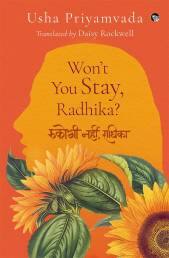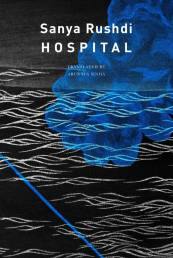



Noting the role of languages in “connecting nations and fostering peace, understanding and development,” in 2017, the United Nations General Assembly passed a resolution to observe September 30 as International Translation Day. Why September 30? Because it happens to be the feast day of the translator of the Bible, St. Jerome, who died in 420 AD. To celebrate his legacy and the contribution of translators to bridge cultural gaps, each year is designated a theme. This year’s is “Translation Unveils the Many Faces of Humanity.”
Below is a list of five translated books that capture a diverse range of human experiences and must be commemorated on this day.
Hugs and Cuddles (Two Line Press, 2022) by João Gilberto Noll; translated from the Brazilian Portuguese by Edgar Garbelotto

The doyen of Brazilian literature, Gilberto Noll’s book was on this year’s Lammy shortlist for Gay Fiction. It seems the poster child of pathbreaking and genre-defying fiction. A fever-dream-of-a-novel, it toys and challenges gender and societal norms by documenting the extraordinary sexual adventures of an anonymous person in the city of Porto Alegre. From the vivid descriptions of his sexual encounters—both deemed fit and unfit by society—to the narrative arc that disturbingly shifts gears every now and then to fit in a critique of an oppressive government by employing people who interject the story by asking for “donations,” Hugs and Cuddles is a force to reckon with.
Boulder (Simon & Schuster, 2023) by Eva Baltasar; translated from the Catalan by Julia Sanches

This translated work was on this year’s International Booker Prize shortlist. Though slimmest among its competition, it perhaps unpacks a lot that thick volumes could only aspire to do. The titular protagonist is a cook who’s been named so by her lover, Samsa. (Reminds of Kafka?) Middle-aged, they move in together when Samsa gets a job in Reykjavik. However, the cook soon realises how liberating it was to be her own person before this move, as she’s confronted with the question of co-parenting a child. Hinting at the precarity of collective decision-making, exploring the limits of love, language, and a human body, Baltasar’s prose in Sanches’ translation is chiselled, bare, and most piercing.
The Helicopters Are Down (Hachette, 2023) by Indira Parthasarathy; translated from the Tamil by Andy Sundaresan

Amirtham, a middle-aged government employee, is married to Thilakam. His wife of 12 years is bitter about not having a child. Her husband cares less about it. Theirs is a “can’t help it but here we are” kind of marriage, which is uneventful, unexciting, and on the cusp of a collapse but is being dragged on for multifarious reasons. One is co-dependency. Two good-for-nothings never realise that while they quibble with each other because of their ego, they’re both equally responsible for a failing relationship. However, this boring atmosphere is re-energised when Amirtham finds semblances of her ex, Nitya, in the woman playing the part in a theatre performance. This humorous translation pries open a middle-aged man’s desire to retain his youth by getting into a relationship with a younger woman. Fatherless, the younger woman is drawn to him, exhibiting the Electra complex. The wife, however, learns of their adventures. What unfolds later makes this book a delightful read.
Won’t You Stay, Radhika? (Speaking Tiger, 2023) by Usha Priyamvada; translated from the Hindi by Daisy Rockwell

I read the above and Rockwell’s translation back to back. Interestingly, both books have a few intersecting themes. Upset with her father for even thinking of marrying somebody after her mother’s death, Radhika defies family and moves abroad. Returning after attaining her master’s degree, she’s reminded of Dan, a journalist, who inspired her to go abroad and free herself, that she suffers from Electra complex. A middle-aged man, he thought that they both failed. He, to think he could be with a younger woman, and Radhika, for imagining her father in Dan. But the principal difference is that this book is written by a woman and translated by one. Perhaps I imagine that to have a morose, grief-stricken protagonist navigating through her uneventful life would’ve been an anomaly at the time this book was published in Hindi. If not that, then what distinguishes it from others is its sheer documentation of the scale and the breadth of experiences of aloneness and being a woman—even though privileged and slightly better armed with resources and language—in a male-dominated world.
Hospital (Seagull Books, 2023) by Sanya Rushdi; translated from the Bengali by Arunava Sinha

Rushdi’s debut novel is inspired by real-life events and is set in Melbourne, Australia. While psychosis and depression are at the core of this story, the novel in many ways interrogates the role that language plays in our lives. Additionally, it tells us something about beauty and desirability—our own notions and biases towards them. As someone who has faced mental-health issues, I could relate to the narrator, who despite being so assertive is often treated as an object in need of correction. The protagonist, Sanya’s humanity and feelings are rendered secondary against the collective will of the society to remain sane, together, and certain about everything, for she gives them a sense of un-orderliness in a structure that’s built for them to thrive. It’s awe-inspiring to read this book, which is so effortlessly translated, and captures the effects and after-effects of an illness that has the potential of breaking a life and family apart. The author must be lauded for her sheer strength to articulate and weave such a powerful and arresting narrative.
Discover the latest Business News, Sensex, and Nifty updates. Obtain Personal Finance insights, tax queries, and expert opinions on Moneycontrol or download the Moneycontrol App to stay updated!
Find the best of Al News in one place, specially curated for you every weekend.
Stay on top of the latest tech trends and biggest startup news.